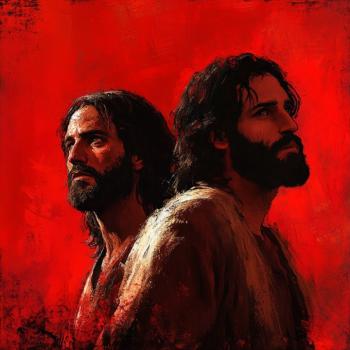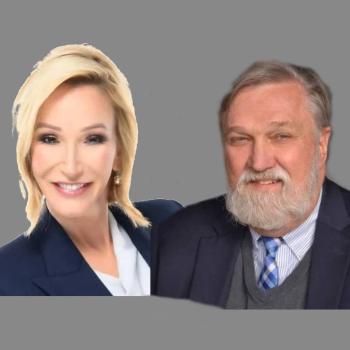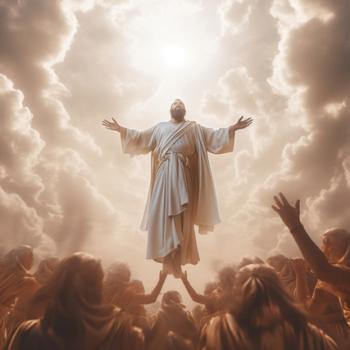By Rev. Noel K. Anderson - May 12 2009
A Pastor friend of mine picks up the phone and is asked if his church allows weddings for non-members. He says yes, in fact they do allow the building to be used for non-members' weddings, but he must meet with the couple first. When the couple-two professional women in their 30s-arrives at the Pastor's office, he struggles to gently and kindly inform them that his denomination will not allow for same-sex ceremonies on church property, and that he would risk losing his ordination were he to perform such a ceremony. The women listen with pained expressions; they feel insulted, rejected, and judged. The Pastor spends the next hour biting his nails wondering whether or not he is liable for discrimination.
Twenty-five years ago, it was difficult to find a family in the congregation who knew a gay couple. Today, it's harder to find a family who does not know at least one. Here in California, Proposition 8 has brought the hot topic of same-sex marriage into every living room, and churches are expected to weigh-in on where and how they intend to act.
I have served the Presbyterian Church (USA) for 25 years as an ordained pastor. The issue of same-sex relationships-specifically, in regard to ordination-has consumed our attention all of that time. Deadlocked in disagreement, we have lost fully half of our population since 1983, and key leaders have projected no solutions for the foreseeable future. The congregation I presently serve is seriously considering re-affiliation with another denomination-one that seems disinterested with sexual politics. But even if such a change is made, California may-as others have-legitimize same-sex marriages. Churches will still have to declare whether or not these marriages will be recognized as marriages, and the conflict will be embodied at new levels.
Surely all Christians-indeed, all religious people-decry the abuse and systematic belittlement of any people-group. Christians across the board have condemned violence against individuals based upon their sexual orientation, and surely all agree that the love and mercy of Jesus Christ is warranted wherever cruelty or hatred are manifest. Even my most conservative Presbyterian colleagues disdain the abuse of gays, lesbians, bisexual or transgendered people.
But it is questionable whether the refusal to grant unprecedented privileges (such as marriage or ordination) quite constitute abuse. For the Church to allow membership to gays and not ordination has been interpreted by many as relegating them to second class citizenship. Presbyterians-and perhaps protestants in general-are scandalously-divided by same-sex marriage issues, chiefly because they do not agree on what The Bible authoritatively says about homosexuality, nor on how that authority is to be applied to life in 21st century America.
The Prebyterian Church (USA) has embodied the gay/straight conflict most fully in regard to the ordination of officers. The current nomenclature gives us "evangelicals" and "progressives." The former refers to those adhering to the traditional sexual standards and the latter to a new agenda. More than anything else, it has been a campaign of risky legislation and spirited, editorial rhetoric. While both sides suffer battle fatigue, the evangelicals are more likely to walk away to other denominations. The progressives approach victory largely through attrition.
The same-sex marriage question raises the temperature decisively, significantly changing the terms of "fidelity" in monogamous union. If gays can marry, then they can also practice fidelity within the covenant of marriage, thereby fulfilling present ordination standards. Evangelicals fear the courts taking the progressives' side and mandating what is for them unconscionable practices.
Perhaps the more significant question is how will the church-state relationship handle a re-definition of marriage, and on whose terms? For the state to tell the church what does or does not constitute marriage would be a drastic departure from the present - rather friendly - separation we now enjoy. It may soon be Christians (and other faith groups) crying for a separation of church and state.
Marriage has always been a religiously-defined entity, not only for Christianity, but for Jews, Muslims, Hindus, Buddhists, and even Pagans. The boundaries and expectations placed upon it depend almost entirely upon religious standards. As such, there is not much meaning to a marriage of non-believers, except as it may endear them to a particular faith community and otherwise guarantee certain civil rights. Presbyterian pastors, as a rule, will not perform marriages for unbelievers. Presbyterian weddings are necessarily services of worship, which means, yes, it is about God.
The Church must retain the right to define marriage as it sees fit, according to scripture and in regard to no other worldly power. No court - including the Supreme Court - can tell a church how to be a church. Should courts take unconscionable liberties with definitions of marriage, then conscientious churches will be forced to either disregard the rulings and suffer penalties, or they will have to revise all church documents, constitutions, and orders of worship to replace the word "marriage" with the terms like "Holy Matrimony" or "Christian Marriage." It is inevitable: either church or state is going to have to get out of the marriage business.




